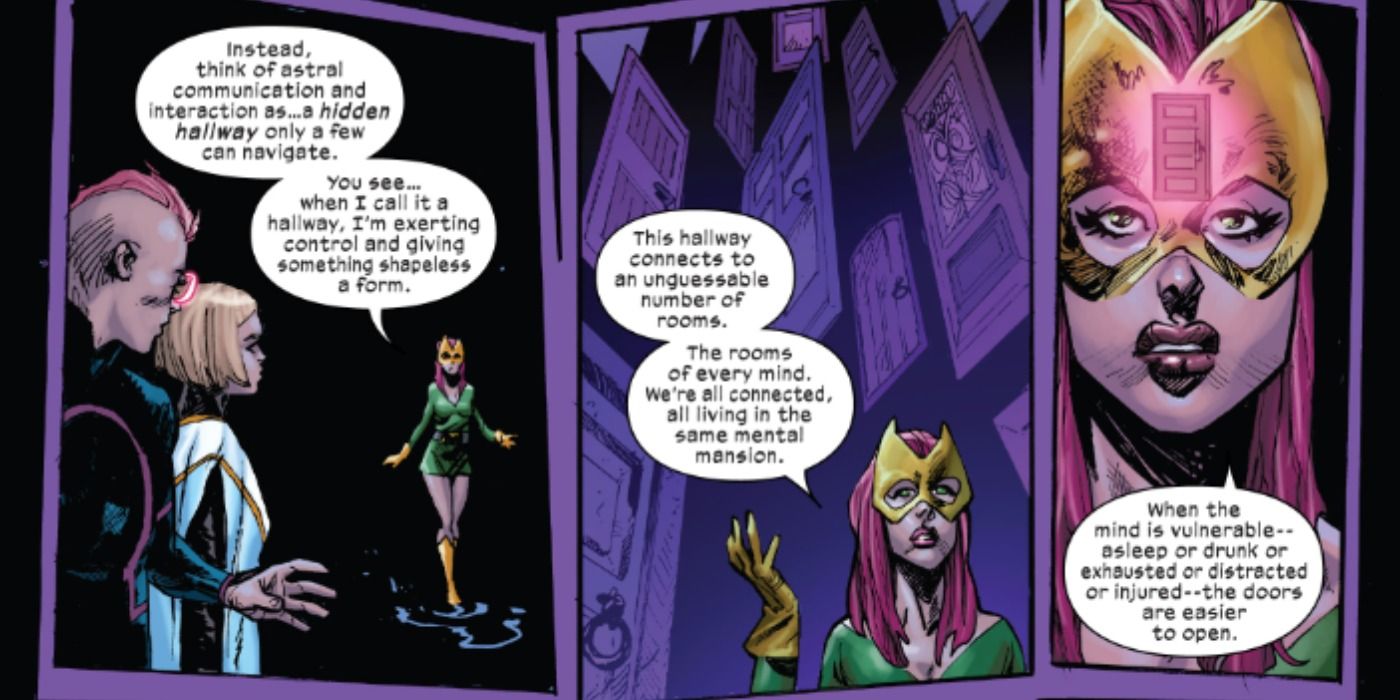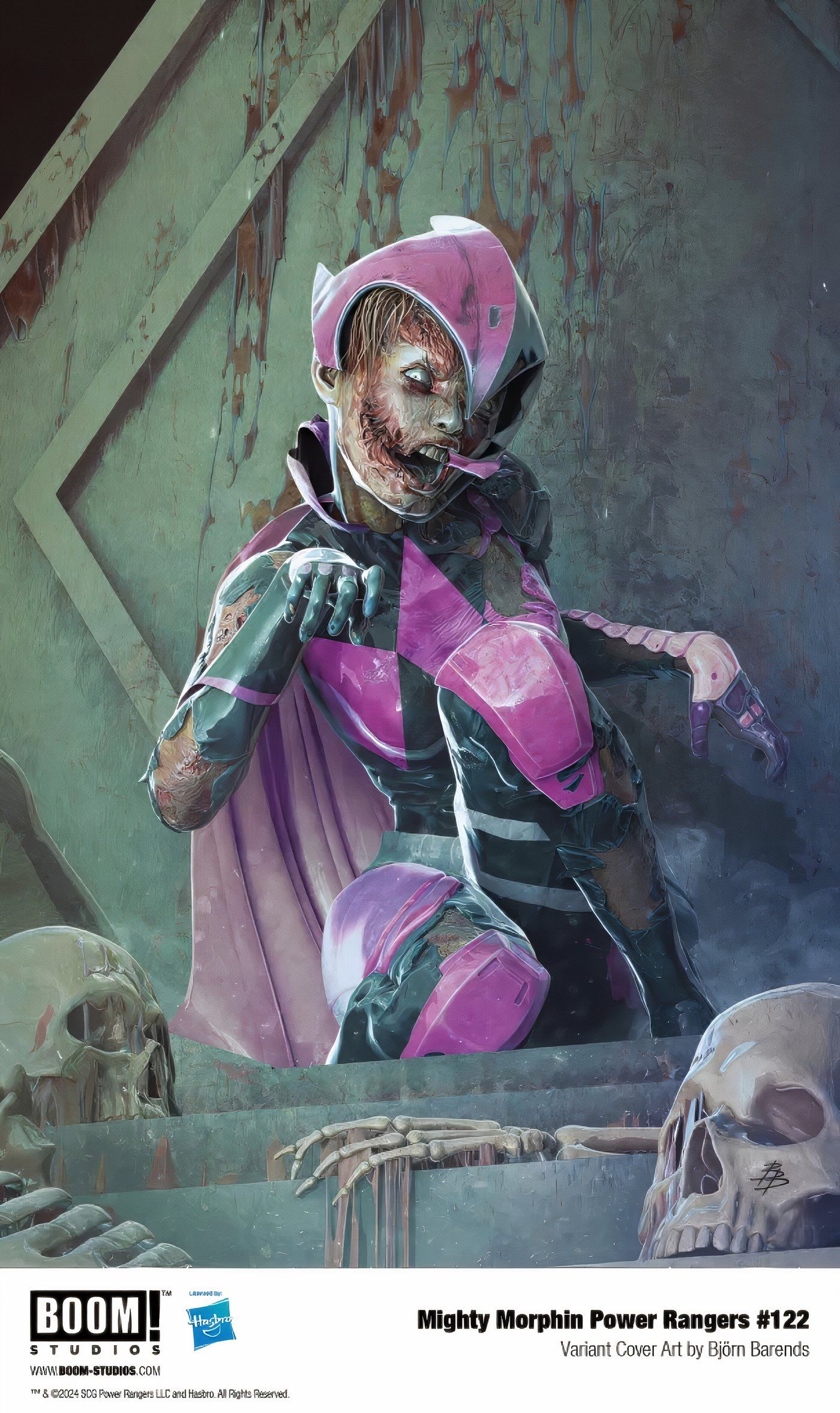Warning: spoilers for X-Force #19
This month in the world of Marvel Comics’ X-Men, in an effort to excise a psychic threat wreaking havoc on X-Force, Jean Grey takes her newest protege to school, and busts the limits on telepathy wide open. Since the launch of “Dawn of X”, mutantkind has been disrupting almost every facet of the status quo on Earth and in the Galaxy. Now they’re unlocking a whole new psychic dimension, the scope of which has the potential to upend the entire universe.
In the pages X-Force #19, by Benjamin Percy and Garry Brown, a psychic specter bearing the signature of Quentin Quire, aka Kid Omega, has been let loose on the world. Things have escalated to a breaking point, and a reckoning is due. As powerful as Kid Omega is, he’s matured enough since starting anew on Krakoa to know that he can’t accomplish this mission alone. With Beast dead, and Wolverine not responding to communications, mutant powerhouse—and former host of the Phoenix—Jean Grey is enlisted as interim leader of the Krakoan black ops team. Joined by Phoebe Cuckoo—another capable telepath—the three combine forces to locate the threat and plan a course of action. Recognizing the extremity of the situation, Jean agrees to initiate her two companions to a higher telepathic spectrum.
In order to train Kid Omega and Phoebe Cuckoo, Jean Grey takes them to a secret bath built somewhere beneath the island of Krakoa. This mental tide pool allows for the telepathic mind to “untether” from the body, effectively making it a kind of Cerebro but for astral projection. At this point, Quentin and Phoebe enter the “Dreamscape”, which Jean also refers to the Astral Plane. Fans of Doctor Strange will be familiar with this powerful ability, but, as always, mutants break with convention. Think of it less like a para-dimension where the physical laws of the universe no longer apply, and more like the psychic backroads where every path connects to an individual mind. Very few have access to this realm and it’s as dangerous as it is useful. Much like when “freed minds” are reconnected to the Matrix, in the Wachowskis’ groundbreaking Matrix Trilogy, whatever damage the telepath’s mind incurs is also visited upon the body. Meaning, if you die in the “Dreamscape”, you die in the real world too.

Within this plane, a telepath has—ostensibly—access to every sentient mind in the universe. As Jean Grey explains, if each mind were represented by a door, then doors where the mind is vulnerable (asleep, intoxicated, injured) would be easier to open. From this, readers can infer that a door can be manipulated by the telepath, as if picking the lock, or broken into with brute force, but this can be harmful to the mind, as well as a reprehensible transgression unto someone’s privacy. What’s more, and just like The Matrix’s hero Neo, the only limitation on a telepath’s strength in this plane is their belief in themselves. Unlike Masters of the Mystic Arts, telepaths enter the astral plane with a “psionic arsenal” at their disposal, which is equally fueled by belief. Free of insecurities, self-doubt, and appropriately motivated, mutants like Jean, Quentin and Phoebe could as good as go nuclear.
That the X-Men’s most powerful telepaths have access to this psychic realm without the need of any external amplification such as Cerebro, goes far beyond the world of X-Force. The Marvel Comics universe is currently in the midst of a mutant renaissance, and readers are witnessing the once doomed species taking over the Earth and applying their influence throughout the cosmos. Now, with Jean Grey’s “Dreamscape” in play, what’s left to hold them back?





